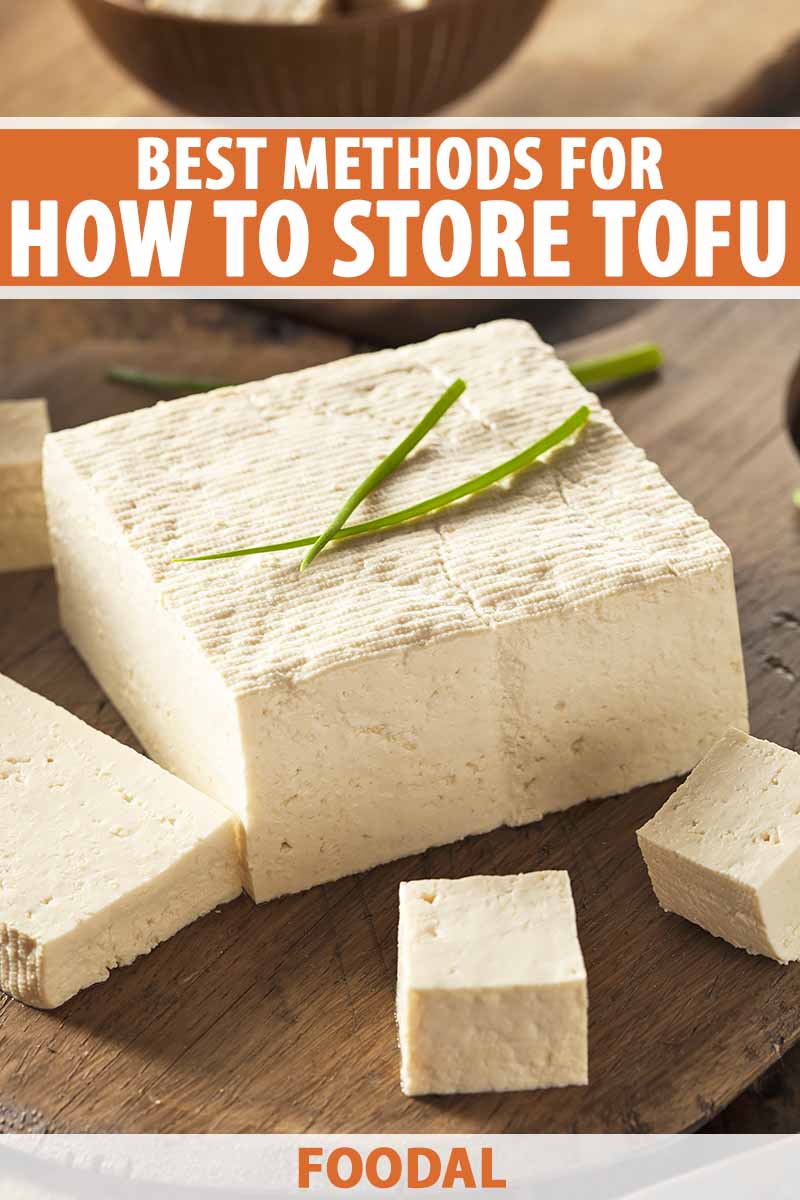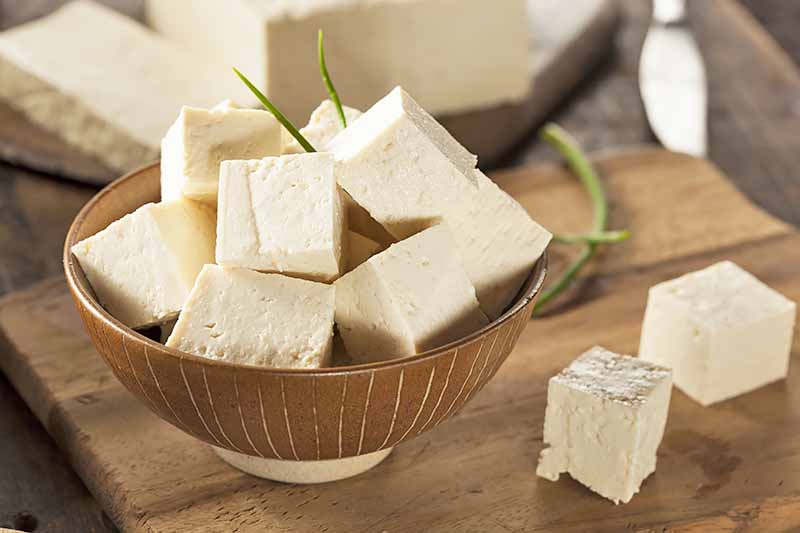If you or someone you know has ever taken a long time to fall in love with tofu, don’t worry. You’re not alone.

When pad thai became a regular in my takeout rotation in college (thanks to a roommate whose fixation on the stir-fry was borderline questionable), I was eating the silky soy product on a weekly basis.
But not on purpose, per se.
In fact, I often flung the spongy white cubes aside as I dug through the rice noodles in search of extra-large nuggets of chicken or scallion cylinders. When I would accidentally chomp down on the occasional tofu sliver, however, I found the texture delicate and was delighted with how the tangy, tamarind-soaked pieces melted on my tongue.
Years later, I found a fantastic hole-in-the-wall Asian fusion spot that elevated the power of their pad thai with smoked tofu. The dish became my comfort food of choice, and my feelings for the unassuming block of bean curd became stronger than I ever could have imagined.
I realized that failing to incorporate the ingredient in my own home cooking was a kitchen faux pas I was ready to correct. For one of my first test rounds with tofu, I tackled this utterly easy, flavor-packed miso soup.
And then I encountered the great tofu dilemma:
A lot of recipes don’t call for the whole hunk.
Stranded with a dearth of ideas for how to use up the remaining portion of plant-based protein, you’re already tofu-ed out for the day and ready to pack it away.
You know it offers plenty of health benefits since it’s high in protein, low in saturated fat, and high in polyunsaturated fats, so just tossing it would be wasteful.
But you already tore into the package, so now what? Can you preserve it for later use? And when you excitedly ripped off the plastic seal, tofu water nearly flung into the other room. Oops, did you need that?
Look, we know you’ve got all the questions. Don’t worry – we have the answers you’re looking for.
Here’s what we’ll cover up ahead:
How to Store Tofu
Should I Store Tofu in the Fridge or Freezer?
The short answer is great news for everyone! You can totally do either, and with any variety of tofu.

Both storage methods are options for those leftover morsels of tofu, but there are a few stipulations as far as determining how to keep it at peak freshness goes. Keep these guidelines in mind:
If you plan to use the tofu you just opened within a week, let it hang in the fridge.
If you didn’t set a date with your leftover tofu for the upcoming week, storing it in the freezer is going to be the best move.
For the latter, you’ll skip any sort of water bath, cut the tofu into chunks, and arrange them on a parchment-lined sheet pan. Freeze until solid, and then transfer the frozen cubes to an airtight bag or freezer-safe container. Try to use a container that’s just big enough for this purpose, to avoid freezer burn.
When you’re ready to tinker with your tofu once again, simply transfer it back to the fridge to defrost, squeeze out any excess liquid, and get rolling.
As an added benefit, freezing tofu – particularly the ultra-smooth silken variety – actually increases its sponge-like abilities, making it better suited for absorbing sauces and marinades. Time spent in the freezer also gives it a little more of a chew, which is ideal for frying, baking, or even grilling, like you’ll do if you make this paprika-marinated tofu that’s paired with charred romaine.
How Long Can I Store Tofu in the Fridge?
First, there’s the obvious. If your package is unopened, it can chill out in the fridge indefinitely, as long as it isn’t past its expiration date.

Once you break the seal, any leftovers can be stored in the fridge in water for about 7 days.
If you faithfully change out that water every day, some claim it will stay at its fresh best for up to 10 days before it starts to lose flavor and quality. But we’ll circle back to the storing liquid requirements later in the article.
Do Storage Recommendations Vary for Cooked vs. Uncooked?
Besides tofu that’s fresh out of the package, what about leftovers that have already been cooked?

More good news!
The same way that cooked animal proteins will stay fresh in the fridge for several days, tofu is no different. Place the remainder of your cooked tofu in an airtight container and you can keep it in the fridge for up to 5 days.
Making sure it’s cooled off completely before you pack it away is a key part of this process. Steam that’s released can lead to unwanted condensation, which changes the tofu’s texture and flavor.
Also, if the dish you made called for submerging the tofu in a sauce, you might want to take the extra step ahead of time of only mixing the tofu and sauce together that you plan to eat for that meal and keeping any excess unadorned, with the sauce stored separately.
Tofu is a tremendously absorbent food. If it’s saturated in sauce while it waits for you in your fridge, it will only continue to lose firmness.
If your cooked tofu is going in the freezer, after letting it cool down first, place it in a freezer bag with as much of the air squeezed out as possible. A vacuum sealer is a great tool to use here. Or, you can opt for an airtight container.
Get out your permanent marker as well. Marking the date and a description of what you’re throwing in the freezer on the packaging is crucial if you plan to ever actually encounter it again. You know I’m not wrong.
This is the perfect opportunity to put your meal prep skills to work. Aim to freeze tofu leftovers in smaller portions to prevent air from entering the packaging and so you only need to defrost what you’re going to use, just as you might with a pack of chicken breasts.
Cooked or uncooked, it will stay at its best quality for up to 3 months in the freezer.
Can I Store Tofu in the Fridge Without Water?
Can you? Sure. Should you? Probably not.

When a storage experiment was done on extra-firm, firm, and silken tofu kept in plastic containers in the fridge, the samples without any liquid only lasted between 4 and 6 days.
It’s not as if it went bad immediately, but if you can double its life, why would you take any other route?
Some tofu wizards swear by storing it in salted water. And though that will keep it in edible condition for up to two weeks, we advise against this, as it will instantly take on an overly briny flavor.
Covering the tofu with water (preferably filtered) and changing the liquid daily is your best bet for keeping it moist and fresh. But some cooks argue that once tofu has been opened and stored in water, it maintains its straight-from-the-package flavor best if the water isn’t changed.
Whichever water technique you decide to take on, keep an eye on the liquid to make sure it stays clear. Cloudiness can point to the presence of bacteria.
How Do I Store Tofu Long-Term?
You already know it’s okay to store opened tofu in the freezer, either unused or cooked. But for how long?

Unopened and in its original package, tofu is good to go for up to 3 months past its expiration date. Just don’t stack a pile of frozen pizzas on top of it, as the added weight and pressure can lead to squished blocks.
Which is not, in fact, the technical term for damaged tofu.
Once again, here’s your warning label: defrosted tofu contains previously frozen water molecules. Moisture loss happens in the freezer, and repeat freezing and thawing leads to freezer burn, and a slightly altered taste and texture.
So keep that in mind if your recipe requires tofu that’s silky-soft. If that’s the case, a journey to the freezer may not be in its best interest.
Sturdy tofu is a great problem to have, though, when you’re stir frying it in yummy dishes like our sriracha tofu, green bean, and carrot stir fry.
Once you’ve cubed the tofu and plopped it in its own private hideaway in the freezer, 3 months is still the golden number in terms of max storage time.
Tofu or Not Tofu?
That is the question you’ll be asking yourself when faced with storing those leftover protein-rich chunks.

If you plan to cook with it again within a week, into the fridge your firm (or silken) tofu should go. If you don’t plan to play chef with the plant-based ingredient again anytime soon, give it a rest in the freezer.
Now you can go off into the world of testing tofu recipes with no fear of waste!
Whether you noodle around with it in, well, a plate of noodles or take it to your Thanksgiving table by tossing it into this vegan-friendly stuffing, you’ll feel good knowing that no soybean curd will be left behind.
If gaining a little more culinary how-to knowledge piques your interest, you’ll love these other enlightening guides:
- 9 Tips for Cooking in Bulk for a Large Dinner Party
- How to Cook Plain Pasta in Your Electric Pressure Cooker
- 5 Spectacular Ways to Use up Leftover Egg Yolks
© Ask the Experts, LLC. ALL RIGHTS RESERVED. See our TOS for more details. Uncredited photos via Shutterstock. With additional writing and editing by Allison Sidhu.
About Fanny Slater
Fanny Slater is a home-taught food enthusiast based in Wilmington, North Carolina who won the “Rachael Ray Show” Great American Cookbook Competition in 2014, and published her cookbook “Orange, Lavender & Figs” in 2016. Fanny is a food and beverage writer, recipe developer, and social media influencer. She was a co-host on the Food Network series “Kitchen Sink,” was featured on Cooking Channel’s longtime popular series “The Best Thing I Ever Ate,” and continues to appear regularly on the “Rachael Ray Show.”




